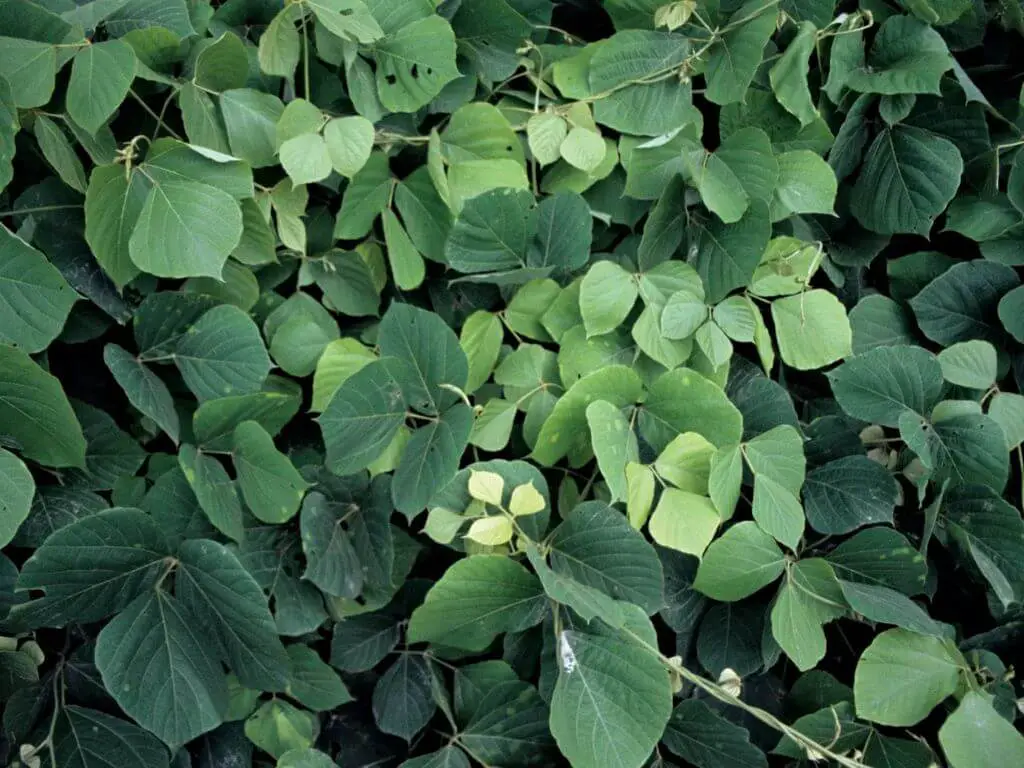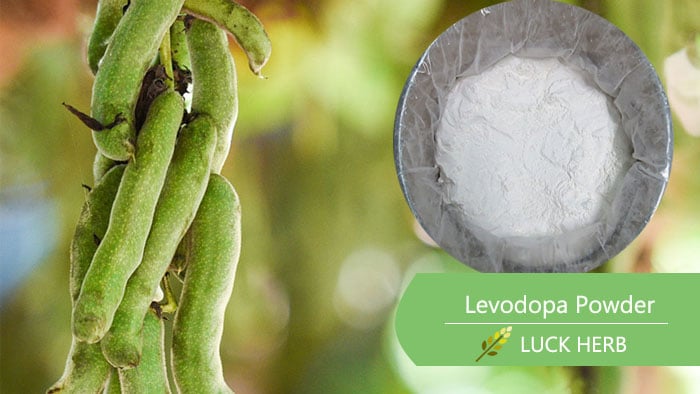The beautiful region of East Asia boasts scenic views, abundant history, and rich culture. More than that, the country is deep-rooted in tradition, and herbal medicines are a common practice among its people.One of the most popular herbs found in East Asia is Kudzu Root. This root has been used in traditional Chinese medicine for centuries. To this day, researchers are still finding new ways to utilize kudzu roots in modern medicine.From aiding with alcoholism and restoring liver health to stimulating collagen and replenishing lost estrogens, this astonishing plant has continuously shown its powerful healing properties. But what exactly makes kudzu root so unique?What Is Kudzu?Kudzu (葛根), also called Pueraria montana, is a climbing vine native to subtropical regions of East Asia, such as China, Japan, and Korea. This herb is known for its other local names, such as the vine-that-ate-the-south, foot-a-night vine, Chinese arrowroot, and Japanese arrowroot.P. montana belongs to the Fabaceae family and is known for its lush green foliage, tuberous roots, and distinctive purple flowers. The plant gained its name “vine-that-ate-the-south” and “foot-a-night vine” because of its horizontal growth that covers the bases and the ground portion of the tree.While the plant is aesthetically pleasing, its true value lies in its medicinal properties. Historically, the roots of this climbing plant are used to treat fever, alleviate diarrhea, and manage heart diseases.Kudzu Root BenefitsKudzu root offers a wide range of potential benefits, making it a subject of interest for those seeking natural remedies to enhance their well-being. Here are some of the most notable advantages of consuming kudzu root.Reduce Alcohol DependenceOne of the most well-known uses of kudzu root is reducing alcohol dependence. Research suggests that compounds found in kudzu may help control alcohol cravings.The isoflavones in kudzu can positively influence the brain’s reward system, making it less likely for individuals to indulge in excessive alcohol consumption. Researchers saw a 34 to 57% decrease in alcohol consumption among participants who took kudzu root extract.Kudzu Root on the market today!Improve Liver HealthKudzu root has been linked to improved liver health. The antioxidants in kudzu, such as puerarin, help protect the liver from oxidative damage and enhance its ability to detoxify the body. This abundance of antioxidants makes it a promising natural remedy for those with liver issues or those looking to support their liver function.Could Stimulate Collagen in SkinSome studies suggest that kudzu root may promote healthier and more youthful skin. In the study, the researchers found that kudzu root extracts could improve the type I collagen in the body because of its abundant phytoestrogen content. Its phytoestrogens, which mimic the effects of estrogen in the body, can help stimulate collagen production, improving skin elasticity and reducing the appearance of wrinkles.Contains PhytoestrogensKudzu root contains phytoestrogens, which are plant-based compounds that can mimic the effects of estrogen in the body. This property has led to exploring kudzu for menopausal symptoms, as it may help alleviate hot flashes and mood swings. However, more research is needed to confirm these potential benefits.May Aid in Weight LossPreliminary studies have suggested that kudzu root may aid in weight loss by helping to reduce appetite and promote a feeling of fullness. This effect is attributed to its influence on specific brain receptors that regulate food intake. While it should not be considered a miracle weight loss solution, it may be a helpful tool when combined with a healthy diet and exercise.Kudzu Root on the market today!Kudzu Root Side EffectsWhile kudzu root holds promising potential for various health benefits, it’s essential to be aware of potential side effects and risks associated with its consumption. Here are some possible side effects to consider:Might Aggravate Hormone-Sensitive ConditionsDue to its phytoestrogen content, kudzu root could potentially worsen hormone-sensitive conditions in some individuals. This population includes people with certain types of breast cancer, endometriosis, or uterine fibroids. If you have such situations, it’s crucial to consult with a healthcare professional before using kudzu.Could Cause Liver ToxicityWhile kudzu is known for its potential liver-protective properties, there is also a concern that it may have hepatotoxic effects in some cases. Excessive or improper use of kudzu supplements may harm the liver. Always use kudzu in moderation and under the guidance of a healthcare provider.Allergic ReactionAs with any natural remedy, allergic reactions to kudzu are possible. If you experience symptoms such as itching, swelling, or difficulty breathing after consuming kudzu, seek immediate medical attention.May Reduce the Effectiveness of Birth Control PillsKudzu’s estrogen-like compounds could potentially interact with hormonal contraceptives, reducing their effectiveness. It is essential for individuals taking birth control pills to consult with a healthcare professional before using kudzu.Could Cause Sudden HypoglycemiaKudzu root has the potential to lower blood sugar levels. While this effect may benefit individuals with diabetes, it can be problematic for those without diabetes. If you have low blood sugar or take medication for diabetes, be cautious when using kudzu and closely monitor your blood sugar levels.Kudzu Root on the market today!What Is the Recommended Dosage of Kudzu Root?Determining the correct dosage of kudzu root can be challenging, as it varies depending on factors like an individual’s age, weight, and overall health. Therefore, it is advisable to consult a healthcare professional before starting kudzu supplementation. However, as a general guideline, here are some dosage recommendations for common forms of kudzu:Kudzu Root Supplements: The typical dosage of kudzu root supplements is around 300mg daily, depending on the specific product’s concentration. Start with a lower dose and gradually increase it as needed.Kudzu Root Tea: For kudzu tea, you can steep one to two teaspoons of dried kudzu root in hot water for about five to ten minutes. Consume it up to three times a day.Monitoring your response to kudzu root and being vigilant for any adverse effects is essential. If you are pregnant, nursing, or have underlying health conditions, always seek professional advice before using kudzu.In ConclusionKudzu root is a fascinating herbal remedy with numerous potential benefits for health and wellness. It has shown promise in reducing alcohol dependence, supporting liver health, stimulating collagen in the skin, and potentially aiding in weight loss. However, it is not without its share of side effects and contraindications.Before incorporating kudzu root into your wellness routine, it is crucial to consult with a healthcare professional to determine the most appropriate dosage and ensure it is safe for your circumstances. When used responsibly and with professional guidance, kudzu root may offer a natural and valuable contribution to your health and well-being.Subscribe to our newsletter!Kudzu Root FAQsDoes Kudzu Root Help With Alcohol Cravings?Kudzu root has gained attention for its potential to reduce alcohol cravings. Research suggests that the isoflavones in kudzu may influence the brain’s reward system, making it less likely for individuals to consume excessive amounts of alcohol. However, individual responses may vary, and it is crucial to consult with a healthcare professional when seeking help with alcohol dependence.Does Kudzu Root Cause Cancer?There is no direct evidence to suggest that kudzu root causes cancer. However, kudzu contains phytoestrogens that could potentially interact with hormone-sensitive conditions, including certain types of cancer. Individuals with a history of hormone-sensitive cancers should exercise caution and consult their healthcare provider before using kudzu root.How To Prepare a Kudzu Root Tea?*Preparing kudzu root tea is a straightforward process. Here’s a simple recipe you can use:Boil the water and then allow it to cool slightly.Place the dried kudzu root in a tea infuser or teapot.Pour the hot water over the kudzu root.Let the tea steep for 5-10 minutes.Remove the kudzu root, and your tea is ready to drink.You can enjoy kudzu root tea up to three times a day. Adjust the steeping time and amount of kudzu root to suit your taste and desired strength. Always be cautious of potential side effects and consult a healthcare provider for personalized advice.Kudzu Root on the market today!Sources:https://www.loveliskin.com/single-post/2017/11/03/retain-your-natural-skin-tone-kudzu-roothttps://www.webmd.com/vitamins/ai/ingredientmono-750/kudzuhttps://www.healthline.com/nutrition/kudzu-root#potential-downsideshttps://pubmed.ncbi.nlm.nih.gov/26545459/https://pubmed.ncbi.nlm.nih.gov/27677719/https://pubmed.ncbi.nlm.nih.gov/22460444/https://pubmed.ncbi.nlm.nih.gov/23070022/https://pubmed.ncbi.nlm.nih.gov/26825303/https://pubmed.ncbi.nlm.nih.gov/25442257/https://www.missouribotanicalgarden.org/PlantFinder/PlantFinderDetails.aspx?taxonid=263642https://www.rxlist.com/supplements/kudzu.htmhttps://www.ncbi.nlm.nih.gov/pmc/articles/PMC5330362/


